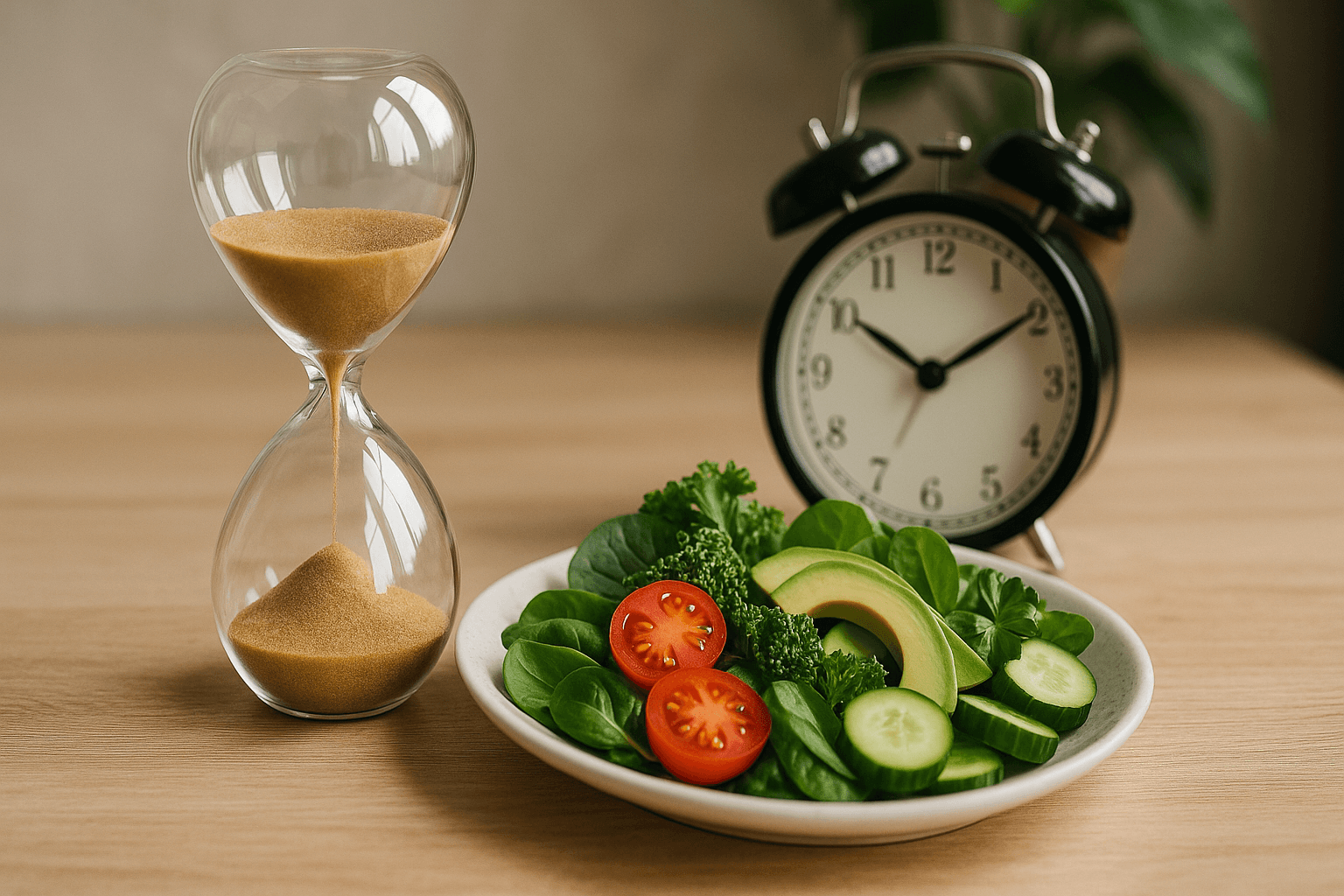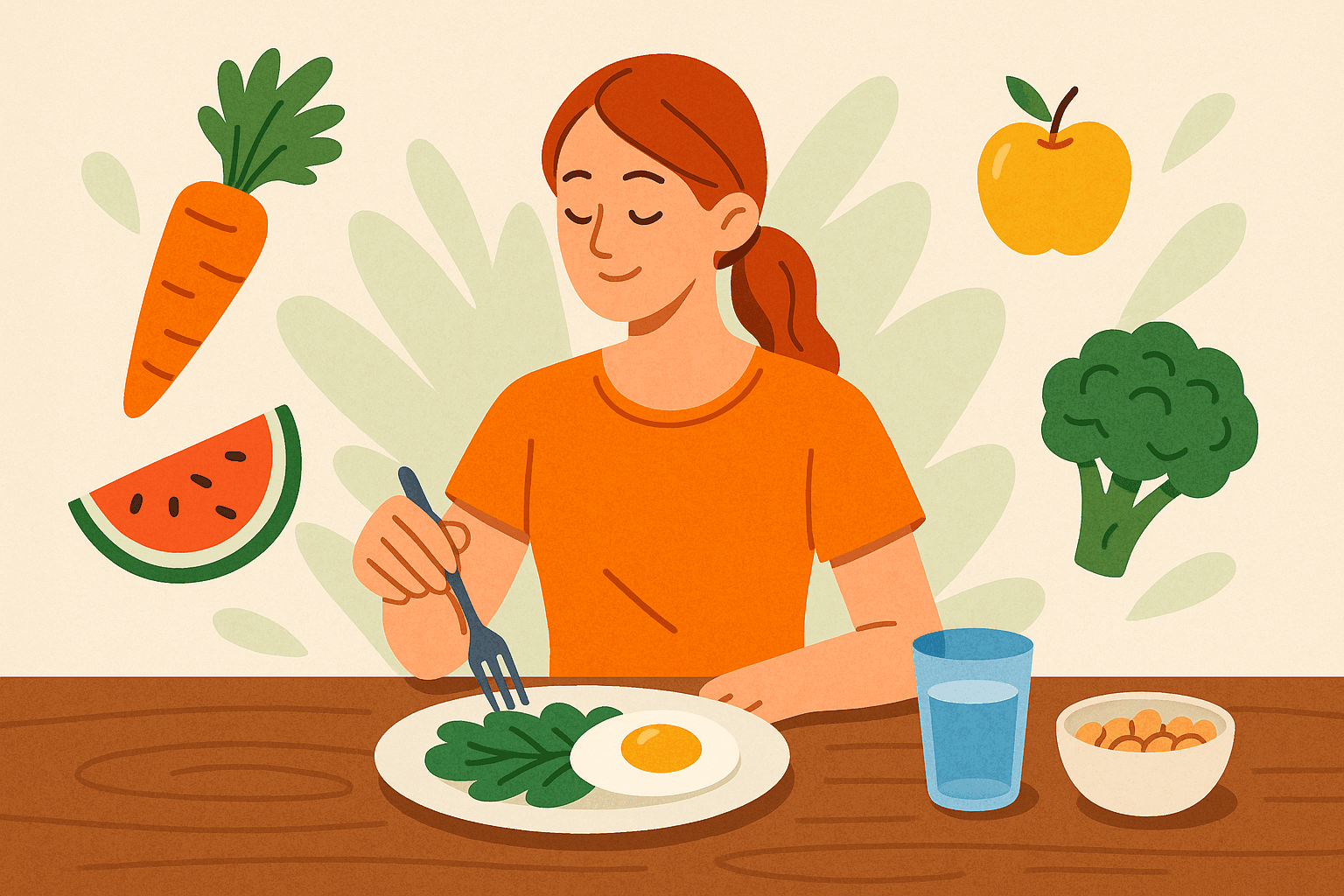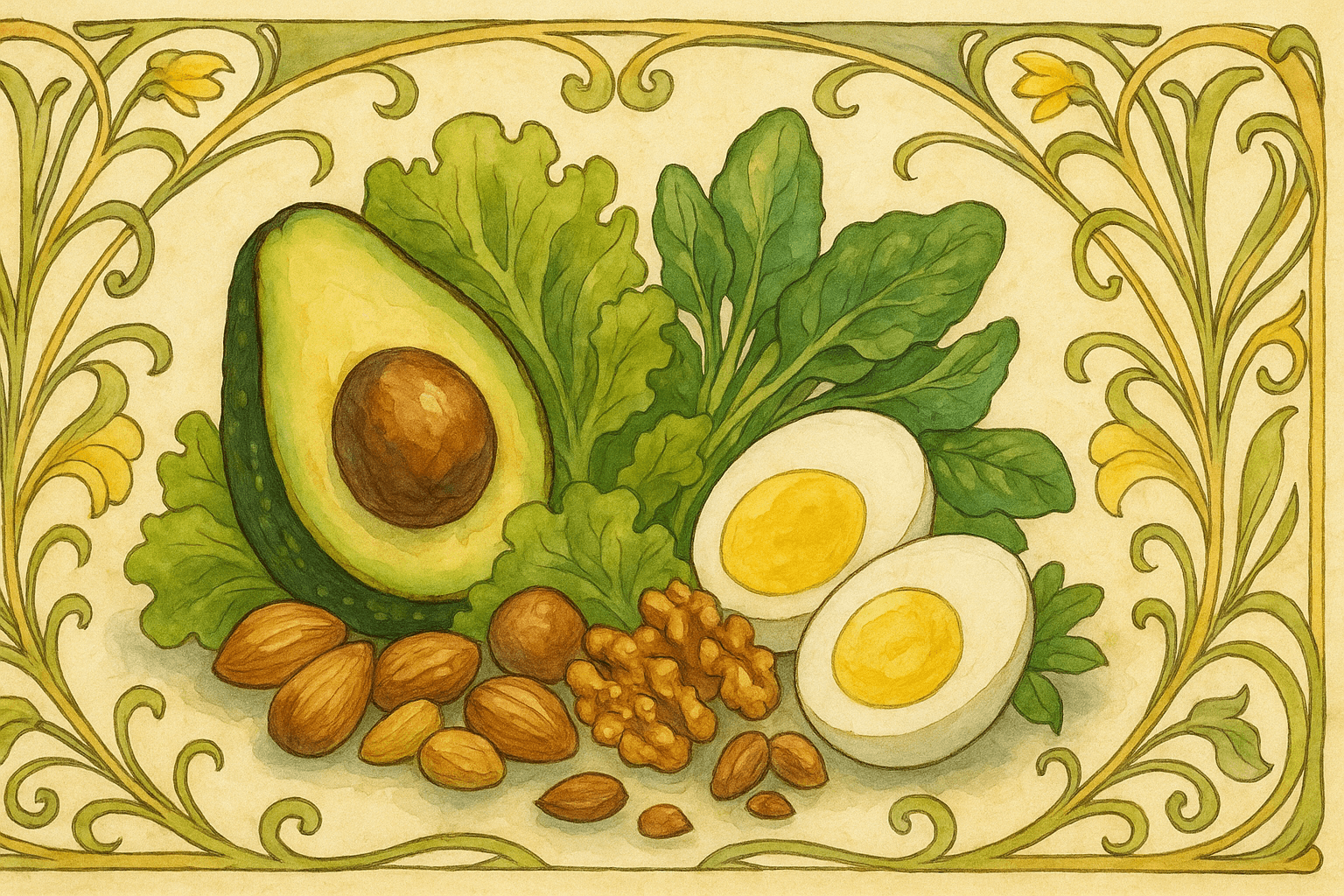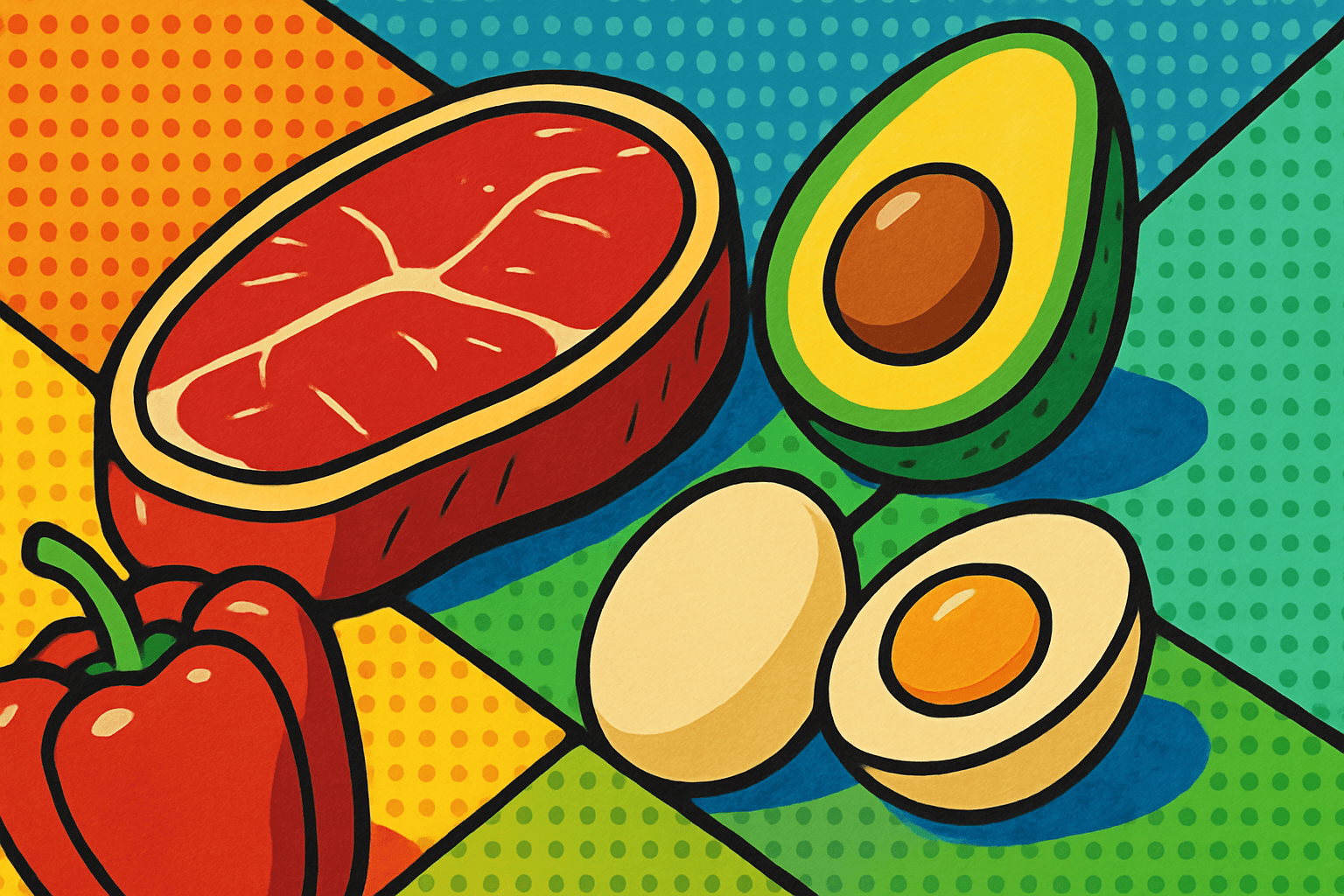EXPLORING INTERMITTENT FASTING: TYPES, BENEFITS, AND PRACTICAL GUIDELINES
Published on July 4, 2025

What Is Intermittent Fasting?
Intermittent fasting (IF) is an eating pattern alternating between periods of eating and fasting, focusing on when you eat rather than what. By structuring eating times, IF leverages metabolic shifts like lower insulin levels and enhanced fat burning for weight loss, metabolic health, and longevity.
Popular IF Protocols:
16/8 Method: 16-hour daily fast, 8-hour eating window (e.g., 12 pm–8 pm).
5:2 Diet: Normal eating 5 days/week, 500–600 calories on 2 non-consecutive days.
Alternate Day Fasting: Eat one day, fast or consume 500 calories the next.
Eat-Stop-Eat: 24-hour fast 1–2 times per week.
Warrior Diet: 20-hour fast, 4-hour eating window with one main meal.
How Does IF Work?
Fasting reduces insulin, switching the body from burning glucose to fat, producing ketones for energy and mental clarity. IF also activates autophagy, a cellular repair process that clears damaged components, reducing disease risk. Hormonal shifts, like increased HGH and norepinephrine, further boost fat metabolism and energy expenditure.
Benefits of Intermittent Fasting:
Weight and fat loss: Decreases calorie intake, increases fat burning.
Improved insulin sensitivity: Helps stabilize blood sugar, lowering type 2 diabetes risk.
Heart health: May lower blood pressure, cholesterol, triglycerides, and inflammation.
Brain function: Ketones may improve cognition and reduce oxidative stress.
Longevity: Animal studies show lifespan extension; human research is ongoing.
Gut health: May enrich gut microbiota diversity and strengthen gut barrier.
Scientific Evidence:
Studies show IF matches continuous calorie restriction for weight loss and improving insulin, blood sugar, blood pressure, and cholesterol. Emerging research links IF to better markers of aging, mitochondrial function, and reduced inflammation.
Challenges and Considerations:
Hunger and cravings, especially early on.
Not recommended for children, pregnant/lactating women, or those with eating disorders or chronic illnesses without medical advice.
Athletes may need customized schedules for performance and recovery.
Extended fasting without guidance can cause hypoglycemia or nutrient deficiencies.
Practical Tips for Success:
Ease into longer fasting periods.
Stay hydrated with water, herbal teas, or black coffee.
Eat nutrient-dense meals during your eating window.
Monitor electrolytes (sodium, potassium, magnesium).
Listen to your body and adjust if needed.
Plan meals to avoid impulsive eating.
Incorporate daily movement for metabolism and fat loss.
Monitoring and Adjustments:
Track weight, energy, blood sugar, and ketones to refine your approach. Consult healthcare providers if taking medication or managing health conditions.
FAQs on IF:
Can I drink coffee or tea? Yes, unsweetened drinks like black coffee and herbal tea are allowed.
Will I lose muscle? IF can preserve muscle with enough protein and resistance training.
When will I see results? Benefits may appear within weeks but vary individually.
Other health benefits? Studies suggest IF may aid autoimmune diseases, metabolic syndrome, and support cancer therapies.
Environmental Impact and Sustainability:
IF may reduce food waste and reliance on processed foods. Pairing IF with plant-based meals further lowers your eco-footprint, benefiting health and the planet.
Psychological and Social Factors:
While some enjoy enhanced focus, others struggle with social events conflicting with fasting windows. Flexibility, communication, and planning support both social and health goals.
Emerging Trends and Research:
Circadian-timed eating may maximize metabolic benefits. Personalized fasting based on genetics and microbiome profiles is a promising frontier. Long-term safety and sustainability remain active research areas.
Final Thoughts:
Intermittent fasting, when personalized and guided properly, is a flexible, evidence-based approach for weight loss, metabolic health, and possibly longevity. It can be a sustainable and powerful tool for lifelong wellness.








